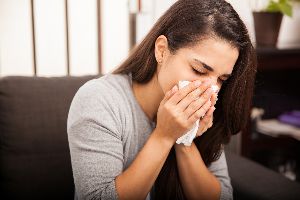Why Indoor Air Quality During Winter Matters

Indoor air quality should be a year-round concern, but winter brings some specific challenges to maintaining a healthy environment in your home. The lack of moisture in the air and additional seasonal conditions can have an adverse effect on your health. The following guide explains how air quality changes during winter and what can be done about it.
Recirculated Air Contains Allergens
Modern homes have energy-efficient windows and doors to enhance insulation. Windows and doors are often kept shut during the colder months, which prevents fresh air from filtering inside. This means the same air continues to circulate through HVAC equipment. The air picks up pollen, pet dander, dust, and other allergens during each cycle. These particles recirculate in living spaces, diminishing indoor air quality.

Breathing in dirty air can cause sneezing, headaches, and other cold-like symptoms. Exposure to the air can also exacerbate asthma symptoms or lead to other respiratory problems. To help ease these concerns, change the furnace filter regularly. Generally, experts recommend replacing it every three months, but inspect it and change it more frequently if you see more dirt and dust than usual.
Low Humidity Levels Affect Mucous Membranes
Indoor and outdoor humidity levels are lowest during the winter months. Raising the temperature on the thermostat lowers the relative humidity of indoor air even more.
The lack of water vapor in the air causes mucous membranes to dry out, which can cause a sore throat and nosebleeds. Low humidity can also cause airway lining dryness, which increases the risk of developing respiratory infections. To combat this, use a humidifier to add moisture to the air.
To determine the indoor air quality in your home, reach out to American Environmental Laboratories in St. Louis, MO. Since 1989, the company has been providing air quality testing and analysis to determine whether mold, radon, and other harmful contaminants are present in indoor spaces. The licensed technicians can also provide asbestos removal and mold remediation to increase the safety and comfort of your space. Learn more about their services online, and call (314) 664-2800 for an estimate.
About the Business
Have a question? Ask the experts!
Send your question

